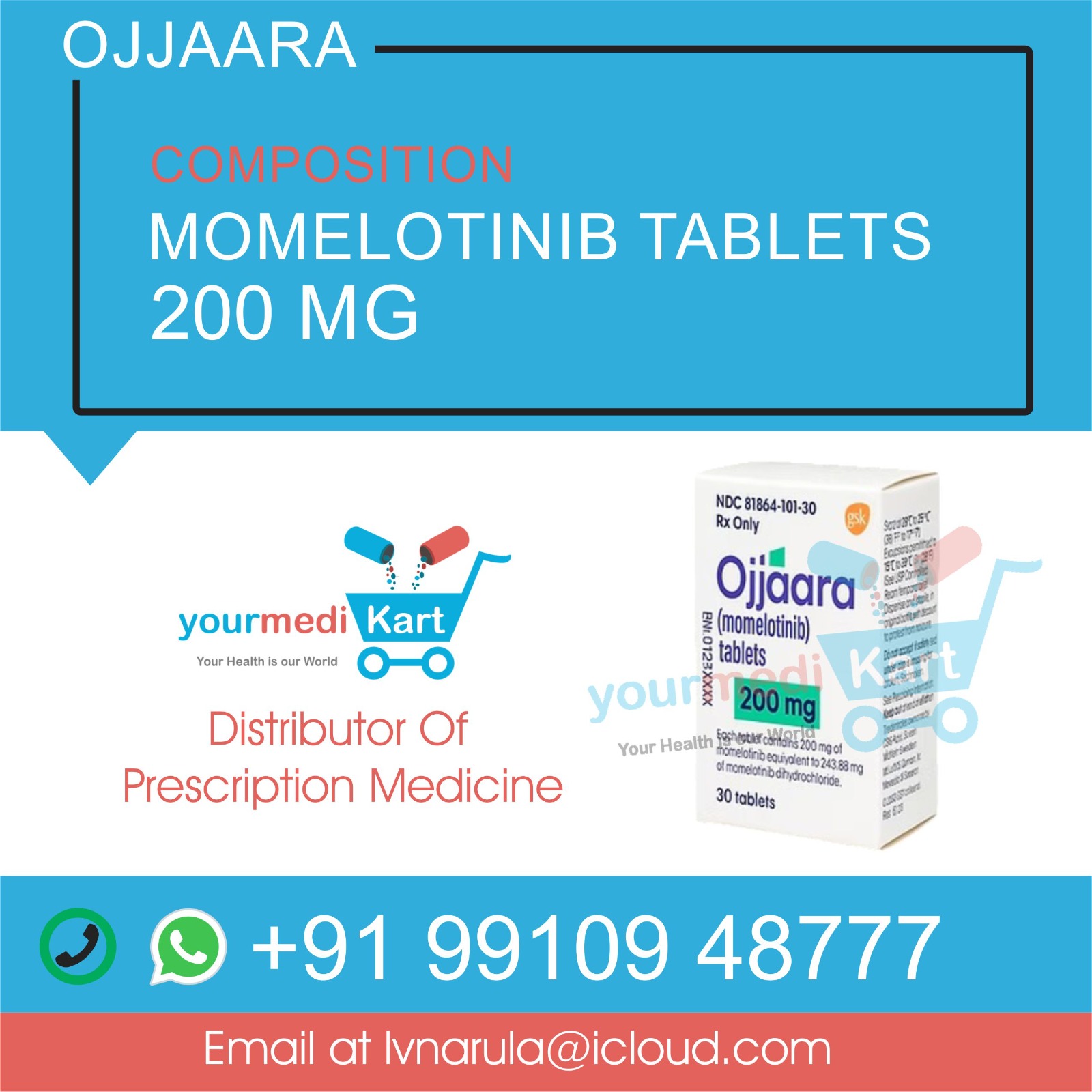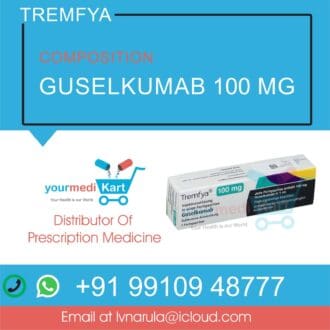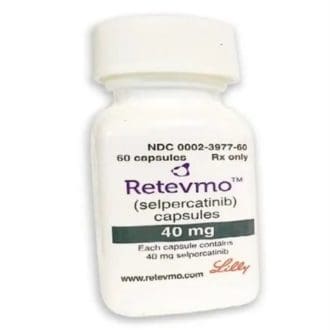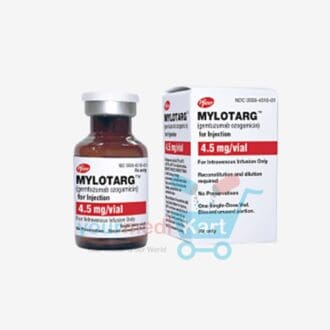Ojjaara Momelotinib 200 mg tablet is commonly used to treat certain types of myelofibrosis in people with anemia. And Ojjaara 200 mg price best online at Yourmedikart and may also be used for other conditions as determined by your healthcare provider. Ojjaara (Momelotinib) is a prescription oral medication approved for the treatment of intermediate to high-risk myelofibrosis (MF) in adults who also have anemia. It is especially helpful for patients who are symptomatic or transfusion-dependent.
Ojjaara Momelotinib 200 mg may also be used for other conditions, as determined by your healthcare provider.
Generic name: Momelotinib
Dosage form: Tablet
Drug class: Multikinase inhibitors
How does Ojjaara work (mechanism of action)?
In myelofibrosis, janus kinases (JAKs) are proteins that become overactive and can cause scar tissue to form in the bone marrow, which can cause low blood cells. Ojjaara is a JAK inhibitor that works to target JAKs in the bone marrow. Ojjaara also works to increase the number of red blood cells in the body by inhibiting a protein called activin A receptor type 1 (ACVR1) in your liver cells.
How should I store Ojjaara?
Ojjaara Momelotinib 200 mg tabletshould be stored at room temperature, between 68 F to 77 F (20 C to 25 C). It can be exposed to temperatures between 59 F to 86 F (15 C to 30 C) for shorter periods of time, such as when transporting it. Store in a cool, dry place. Store in the original bottle. Do not throw away the packet that comes inside your medicine bottle (desiccant). This helps keep your tablets dry.
Dosage Forms Available
Ojjaara is available as oral tablets in the following strengths:
-
100 mg tablets
-
150 mg tablets
-
200 mg tablets
Usual dose: 200 mg once daily or as prescribed.
Before taking OJJAARA
- Have or have had hepatitis B
- Have or have had liver problems
- Have had a heart attack, or have or have had other heart problems, or stroke
- Have or have had a blood clot
- Smoke or were a smoker in the past
- Have or have had any other cancers
Are pregnant or plan to become pregnant. OJJAARA may harm your unborn baby.
- Females who are able to become pregnant:
- You should use effective birth control (contraception) during treatment and for 1 week after the last dose of OJJAARA.
- Tell your healthcare provider right away if you think you are pregnant or become pregnant during treatment with OJJAARA.
- Are breastfeeding or plan to breastfeed. It is not known if OJJAARA passes into your breast milk. You should not breastfeed during treatment and for 1 week after the last dose of OJJAARA. Talk to your healthcare provider about the best way to feed your baby during this time.
- Tell your healthcare provider about all the medicines you take, including prescription and over-the-counter medicines, vitamins, and herbal supplements. Taking OJJAARA with certain other medicines may affect the amount of OJJAARA or the other medicines in your blood and may increase your risk of side effects.
- Know the medicines you take. Keep a list of the medicines you take to show your healthcare provider and pharmacist when you get a new medicine.
How should I take OJJAARA?
- Take OJJAARA exactly as your healthcare provider tells you to take it.
- Take OJJAARA by mouth 1 time each day.
- Take OJJAARA with or without food.
- Swallow tablets whole. Do not cut, crush, or chew tablets.
- If you miss a dose of OJJAARA, skip the missed dose and take your next dose the following day at your regularly scheduled time. Do not take 2 doses at the same time to make up for the missed dose.
- Your healthcare provider will do blood tests before you start taking OJJAARA and during treatment
- Do not change your dose or stop taking OJJAARA without first talking to your healthcare provider.
- Your healthcare provider may change your dose, temporarily stop, or permanently stop treatment with OJJAARA if you get certain side effects.
- If you take too much OJJAARA, call your healthcare provider or Poison Help line at 1-800-222-1222, or go to the nearest emergency room right away and take your bottle of OJJAARA with you.
Precautions
Who should not use Ojjaara?
Allergies to Ingredients. People who are allergic to any of the following should not take Ojjaara.
- Ojjaara
- Momelotinib
- Any of the ingredients in the specific product dispensed
Your pharmacist can tell you all of the ingredients in Ojjaara.
What should I know about Ojjaara before using it?
- Do not take Ojjaara unless it has been prescribed to you by a healthcare provider. Take it as prescribed.
- Do not share Ojjaara with other people, even if they have the same condition as you. It may harm them.
- Keep Ojjaara out of the reach of children.
- Ojjaara is taken by mouth once a day, with or without food.
- Swallow the tablet whole. Do not chew, cut, or crush the medicine.
- Ojjaara can affect your alertness or coordination. Do not drive or do other activities that require alertness or coordination until you know how Ojjaara affects you.
What should I tell my healthcare provider before using Ojjaara?
- Tell your healthcare provider about all of your health conditions and any prescription or over-the-counter (OTC) medicines, vitamins/minerals, herbal products, and other supplements you are using. This will help them determine if Ojjaara is right for you.
- In particular, make sure that you discuss any of the following.
- Smoking. Tell your healthcare provider if you currently smoke or have smoked in the past. This can increase your risk of developing a heart attack, stroke, or new cancers.
- Infection. Tell your healthcare provider if you have an infection. Your healthcare provider may not start Ojjaara until your infection goes away.
Current and Past Health Conditions. Tell your healthcare provider if you have or have had any of the following.
- Hepatitis B
- Liver problems
- Heart problems (including heart attack)
- Stroke
- Blood clot
- Any other cancers
- Other Medicines and Supplements. Ojjaara may interact with other medicines and supplements. Before taking Ojjaara, tell your healthcare provider about any prescription or over-the-counter (OTC) medicines, vitamins/minerals, herbal products, and other supplements you are using. See the Interactions section for more details.
- Pregnancy. Ojjaara may harm an unborn baby. Use effective contraception (birth control, condoms, etc.) while taking Ojjaara and for 1 week after the last dose. Tell your healthcare provider if you are or plan to become pregnant. Your healthcare provider will advise you if you should take Ojjaara while you are pregnant or trying to get pregnant.
- Breastfeeding. It is not known if Ojjaara passes into breast milk. It is not recommended to take Ojjaara while you are breastfeeding and for one week after your last dose. Tell your healthcare provider if you are breastfeeding or plan to breastfeed.
Warnings
- Risk of Infections: Do not initiate OJJAARA in patients with an active infection. Monitor for signs and symptoms of infection, including reactivation of hepatitis B, and initiate appropriate treatment promptly.
- Thrombocytopenia and Neutropenia: Manage by dose reduction or interruption.
- Hepatotoxicity: Obtain liver tests before initiation of and periodically throughout treatment with OJJAARA.
- Severe Cutaneous Adverse Reactions (SCARs): Monitor for signs and symptoms, and interrupt OJJAARA until etiology of reaction has been determined.
- Major Adverse Cardiovascular Events (MACE): Monitor for symptoms, evaluate and treat promptly.
- Thrombosis: Evaluate and treat symptoms of thrombosis promptly.
- Malignancies: Monitor for development of secondary malignancies, particularly in current or past smokers.








